News
Food and Beverage Colours: Consumers Demand a Natural Rainbow
10 Sep 2013Colour influences our food choices more than we realise. The main purpose of colour ingredients in food and beverages is to offset the colour that is lost during processing, or to enhance the naturally occurring colour. Nobody wants a fruit flavoured drink that’s a pale shade of brown or canned vegetables that have a similar […]

Colour influences our food choices more than we realise. The main purpose of colour ingredients in food and beverages is to offset the colour that is lost during processing, or to enhance the naturally occurring colour. Nobody wants a fruit flavoured drink that’s a pale shade of brown or canned vegetables that have a similar hue to a dirty pond. Without colour ingredients, this would be the reality. Consumers also closely associate colour with flavour, with brighter colours in food associated with stronger, richer tastes. In recent years, research and development of natural product colours has focused on fruit, vegetable and plant extracts and concentrates – food’s original colour palette.
Colour ingredients are also used to attract consumers’ attention, with the use of vivid, playful colours in products such as sugar confectionery, ice cream and soft drinks. However, food safety has cast a shadow over brightly coloured foods in Europe after a group of researchers at Southampton University confirmed in 2007 that the consumption of several synthetic food colours, including allura red and sunset yellow and dubbed the ‘Southampton Six’, were associated with behavioural problems in children. Rather than being attracted to coloured products, European consumers now ask themselves “What is in that to make it so bright?” and “Is that coloured food safe for my child to consume?” While all food additives are scrupulously tested by the European Food Safety Authority, when it comes to colour ingredients the European preference is overwhelmingly natural.
This is not the case in other parts of the world – at least, not yet. Euromonitor data shows that in 2012, Asia Pacific consumed over a quarter of all synthetic food colours globally, making it the second largest consumer of synthetic food colours after the US. Awareness of the use of natural and synthetic ingredients in processed food remains low in this region – hence the relatively low demand for natural colours in comparison to Europe. However, a rising middle class in countries such as China, Indonesia and India, with an increased interest in food safety, has led to a rising demand for more natural and healthy ingredients, including natural colours. Given the size of the food and beverage market in Asia and its strong rate of growth – in 2017 it is expected that Asia Pacific will consume nearly as much packaged food as Western Europe and North America combined in volume terms – this region perhaps has the most potential for growth for natural food and beverages.
The US is the world’s largest market for natural product colours, consuming over 430,000 tonnes of natural product colours in food and beverage products in 2012. Germany is the only European market to feature in the largest five markets for natural products colours. Because of their sheer size, China, Mexico and Brazil are the second, third and fourth largest consumers of natural product colours in food and beverages globally.

Related news

UK to ban junk food TV advertisements before 9pm
3 Oct 2024
In a bid to reduce childhood obesity, the UK government has introduced a policy, coming into effect on 1 October 2025, banning junk food advertising on television before the 9pm watershed.
Read more
Which food and beverage brands made TIME’s Most Influential Companies list?
2 Oct 2024
Chickpea pasta, prebiotic sodas, food boxes, non-alcoholic beer, and a soil carbon marketplace are the specialties of the five food and beverage brands that earned a spot on TIME’s 2024 list.
Read more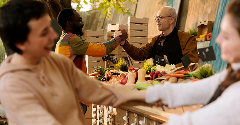
New environmental food scoring standards emerge
30 Sep 2024
EIT Food and Foundation Earth collaborate to launch environmental food scoring for products entering the global supply chain.
Read more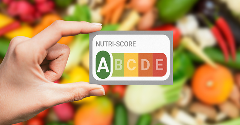
Danone removes NutriScore from products
20 Sep 2024
Following an algorithm update that gives some of its sweetened drinks a worse score, Danone has removed the front-of-pack label, NutriScore, from all of its products – putting profit before public health, say campaigners.
Read more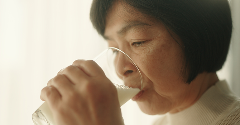
Nestlé develops a new fat reduction method for dairy ingredients
26 Aug 2024
A Brazil-based Nestlé research and development team has developed a way to reduce the fat in milk powder by as much as 60%, without impacting the key characteristics that consumers enjoy.
Read more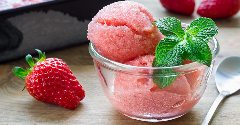
Better Juice expands its range to sorbets
16 Aug 2024
Food tech startup Better Juice has developed a technology to reduce the sugar content in fruit sorbets. The process retains the natural vitamins, minerals, and flavours of fruit, while offering manufacturers an easy-to-implement and scalable solution t...
Read more
German study reveals high sugar, fat, and salt levels in children's foods
13 Aug 2024
The food industry is making slow progress in reducing the high levels of sugar, fat, and salt in German food and beverage products marketed to children, according to the Max Rubner Institute (MRI).
Read more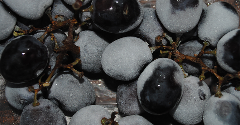
Swedish court overturns prohibition on winery’s use of imported frozen grapes
12 Aug 2024
Swedish company Drood Winery has successfully challenged the Swedish Food Agency’s decision to prohibit the production and sale of their product made from frozen grapes imported from Iran.
Read more
Paris Olympics: Food and beverage brands champion health, fun, and sustainability
5 Aug 2024
Food and beverage brands are aligning with the Paris Olympics 2024 Food Vision, which emphasises sustainability, local sourcing, and plant-based diets.
Read more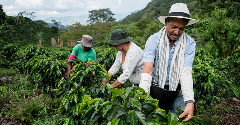
The coffee supply chain is failing farmers, says Solidaridad
30 Jul 2024
The coffee industry’s economic model means its profits do not reach farmers, despite there being enough value to be shared all along the supply chain, according to a new report by Solidaridad Network and IDH.
Read more